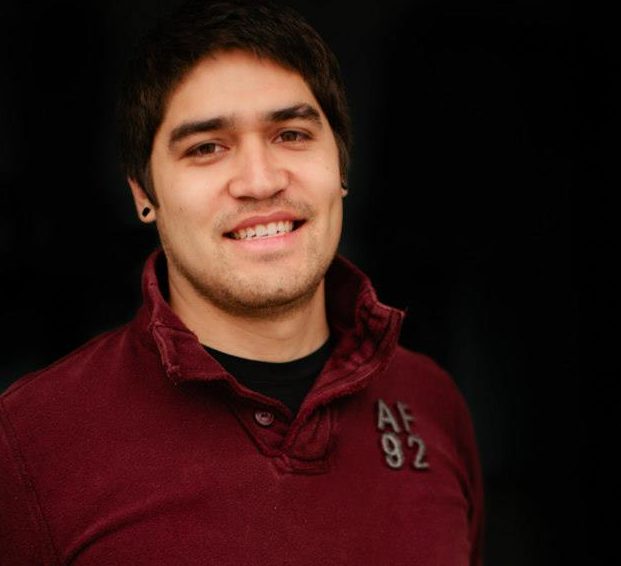 Danilo Sanchez lives in Allentown, Pennsylvania with his wife and two daughters. There he serves as a part-time youth pastor with two Mennonite churches and works part time as the national coordinator for Mennonite Central Committee’s Summer Service program. He studied at Eastern Mennonite Seminary (2013) and Eastern University (2010).
Danilo Sanchez lives in Allentown, Pennsylvania with his wife and two daughters. There he serves as a part-time youth pastor with two Mennonite churches and works part time as the national coordinator for Mennonite Central Committee’s Summer Service program. He studied at Eastern Mennonite Seminary (2013) and Eastern University (2010).
In “The Lion, the Witch, and the Wardrobe” by C.S. Lewis, Edmund, one of the main characters betrays his family. Upon entering Narnia for the first time, Edmund encounters the White Witch who secretly has an evil plan for him and his siblings. As they sit in her sleigh, the White Witch promises to make Edmund king, along with all the Turkish delights he can eat, if he delivers his siblings to her. This offer is too good be true! Unaware of her true intentions, Edmund agrees and keeps their plan from his brother and sisters. The next time all the siblings are in Narnia, Edmund slips away from the group to notify the White Witch. Upon discovering Edmund’s disappearance and the reason for his visit to the White Witch, the family is heartbroken.
Betrayal cuts deep, especially from a person whom we have an intimate relationship with.
Jesus knows this full well. In his last days on earth, he was betrayed by his beloved brothers whom he had walked closely with for the past three years. First, Judas commits to betraying Jesus during their last meal as a family. Perhaps more than the other disciples, Judas has become disillusioned with Jesus; no longer believing that he is the Messiah who would overthrow Rome and be their king. The Accuser convinces Judas that it is time to get rid of Jesus and earn 30 pieces of silver while doing it. The second major betrayal is by Peter. After Judas leaves, Jesus says it is his time to be glorified and that he would no longer be with the disciples. This worries Peter and he proclaims that he will to follow Jesus unto death. Peter’s pride is wounded when Jesus says that Peter will deny knowing him three times before the morning. This will indeed happen, but not before all the other disciples abandon Jesus as he is being arrested. Talk about betrayal and abandonment. So, when the Gospel of John says Jesus was “troubled in spirit,” it feels like we should read “heartbroken.” How could he not be? Within the next 24 hours, his 12 closest friends either betray, deny or abandon him.
Looking at all of chapter 13, I find it interesting that woven between acts of betrayal and denial are the acts of love — Jesus washing the disciples’ feet and the command to love one another in the body of Christ. This weaving together of joy and pain speaks to the paradox of life. In our deepest and closest relationships, we can experience both deep love and deep pain, which makes the command to love one another so powerful and essential to the body of Christ. In our humanity and sinfulness, we will betray, tear down and inflict harm on one another.
But love will unite and hold us together — sacrificial love that humbly serves, speaks truth and forgives.
The body of Christ must be defined by this type of sacrificial love for we are called to it by Jesus. Jesus says the world will know God’s sacrificial love when we display it to each other as disciples.
Returning to “The Lion, the Witch, and the Wardrobe,” one of my favorite scenes in the movie is when Edmund is redeemed. He has been rescued from the White Witch and returns to camp. He first speaks with Aslan. What is spoken in that conversation is unknown, but it leads to Edmund’s repentance and forgiveness. As Edmund is restored to his family, Aslan says, “What’s done is done. There is no need to speak to Edmund about what has passed.” Aslan was willing to forgive, but Edmund is unsure if his family will do the same. His face is cast down in shame and he shifts his eyes up and down. By chance Edmund locks eyes with Lucy. With a smile on her face, she runs over to embrace him. I get a lump in my throat every time by the beauty of redemption and forgiveness. I imagine myself in Edmund’s place all the times I’ve betrayed or hurt someone I love. I never feel worthy of their forgiveness.
On the cross, Jesus will liberate us from destroying ourselves and our relationship with our Creator. On the cross, Jesus will prove that the healing and redemptive work that love and forgiveness can do is powerful. Even though Judas betrayed Jesus, he was not beyond redemption. Peter denied Jesus three times, yet Jesus restored Peter three times over. I wish Judas could have experienced the joy of forgiveness and redemption for betraying Jesus before taking his own life. We must never forget that no one is beyond the redemptive work of Jesus Christ. As we approach Good Friday and Easter, may we remember that Christ will storm the gates of Hell to destroy sin, death and evil so that nothing can separate us from the love of God.

